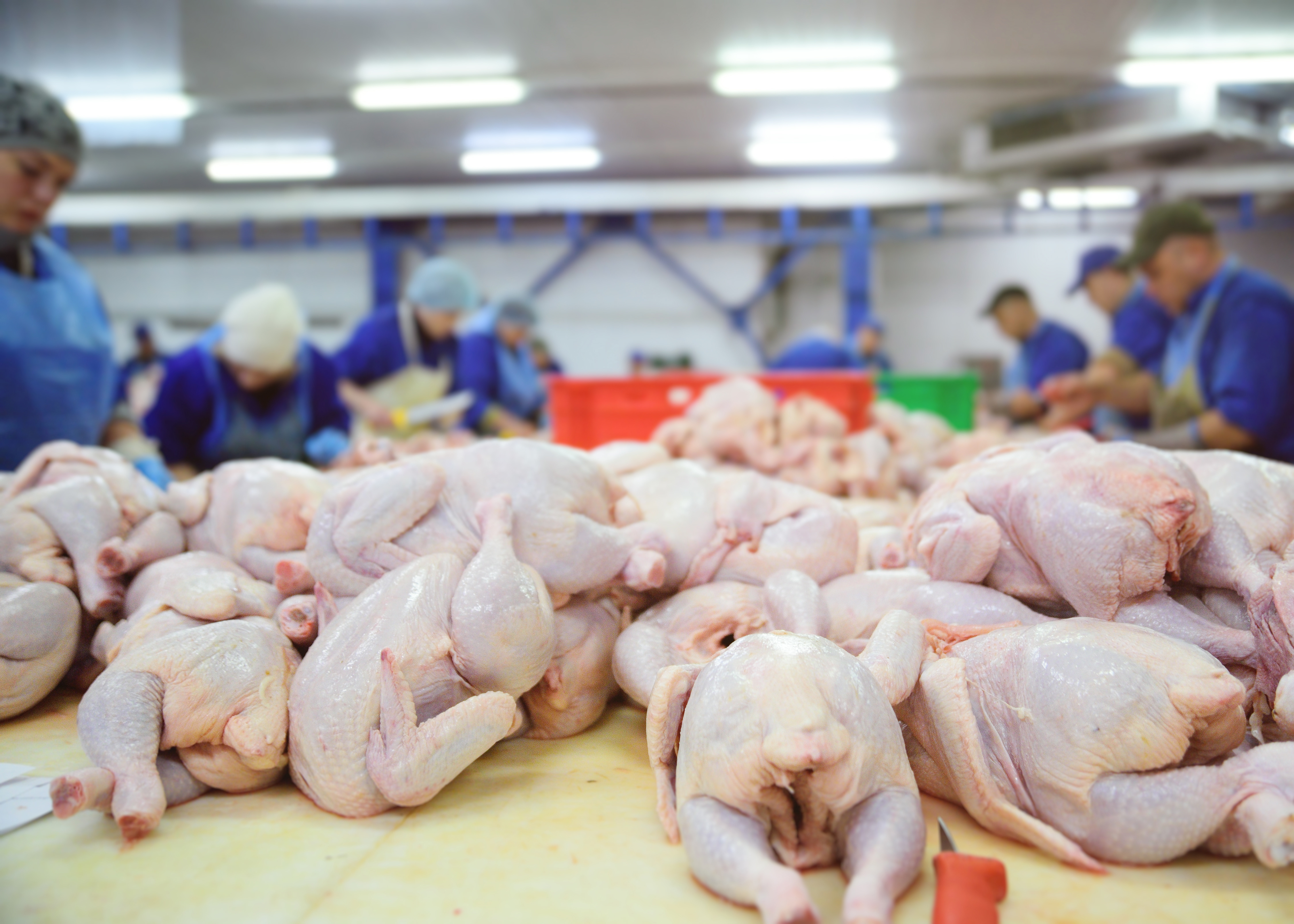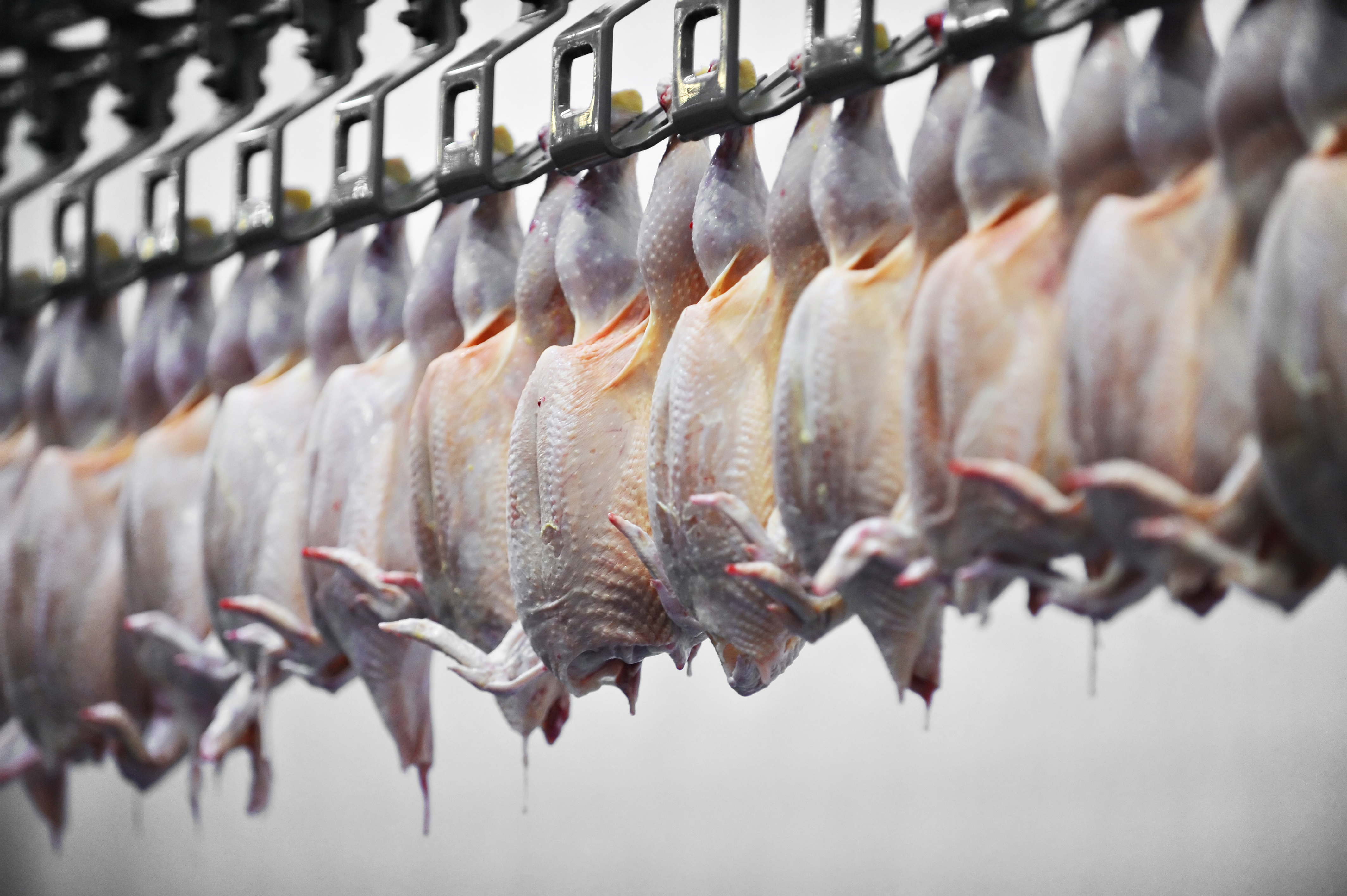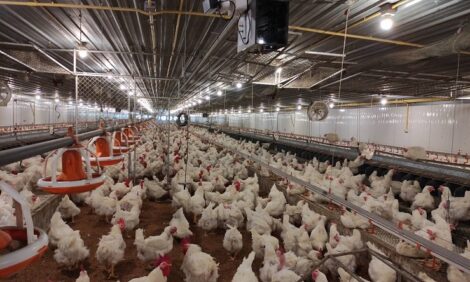



Brexit and COVID 19 prove toxic combination for UK poultry sector
An extended report in Reuters showcases how labor issues stemming from Brexit policies and the coronavirus crisis are distressing the UK’s chicken sector, with price hikes for consumers on the horizon.When Nigel Upson checks the plucked chicken carcasses dangling from a rotating line at his poultry plant in England, he sees cash hemorraging out of his business from a collision of events that has distressed every part of the farm-to-fork supply chain.

Like food manufacturers across Britain, Upson was hit this year by an exodus of eastern European workers who, deterred by Brexit paperwork, left en masse when COVID-19 restrictions lifted, compounding his already soaring cost of feed and fuel.
Such is the scale of the hit, he cut output by 10% and hiked wages by 11%, a rise that was immediately matched or bettered by neighbouring employers in the northeast of England.
Increases in the cost of food will surely follow.
"We're being hit from all sides," Upson told Reuters in front of four vast, spotless sheds that house 33,000 chickens apiece. "It is, to use the phrase, a perfect storm. Something will have to give."
The deepening problems at Upson's Soanes Poultry plant in east Yorkshire are a microcosm of the pressures building on businesses across the world's fifth largest economy as they emerge from COVID to confront the post-Brexit trade barriers erected with Europe.
In the broader food sector, operators have increased wages by as much as 30% in some cases just to retain staff, likely forcing an end to an economic model that led supermarkets such as Tesco to offer some of the lowest prices in Europe.
Following the departure of European workers who often did the jobs that British workers didn't want, retailers may have to import more.
While all major economies have been hit by supply chain problems and a labor shortage after the pandemic, Britain's tough new immigration rules have made it harder to recover, businesses say.
Richard Griffiths, head of the British Poultry Council, says that with Europeans making up about 60% of the sector, the industry has lost more than 15% of its staff.
The Bank of England is weighing up how much of a recent jump in inflation will prove long-lasting, requiring it to push up interest rates from their all-time low.
Upson told Reuters that he needs 138 workers for his plant, but has had to operate with under 100 staff members due to high turnover.
On difficult days Soanes can only deliver the absolute basics - chickens piled into boxes. They do not have time to truss the birds for retail or put them into separate, Soanes-labelled packaging that commands a higher selling price.

Around 3 tonnes of offal that is normally sold each week is going in the skip due to the lack of staff to process it.
The sudden rise in wages and the drop in output also come on top of spikes in the cost of animal feed, energy and fuel, carbon dioxide, cardboard and plastic packaging.
"We've just had to say to our customers, sorry, the price is going up," Upson said, shaking his head. "We're losing money, big style." The poorest consumers would be hardest hit, he said.
Business owners have urged the government to temporarily ease visa rules while they do the staff training and automation of processes needed to help close Britain's 20-year, 20% productivity gap with the United States, Germany and France.
But far from changing course, Prime Minister Boris Johnson says businesses need to cut their addiction to cheap foreign labor now, invest in technology and offer well-paid jobs to some of the 1.5 million unemployed people in Britain.
While 5,500 foreign poultry workers will be allowed to work in Britain before Christmas, and the UK will offer emergency visas to 800 foreign butchers to avoid a mass pig cull sparked by a shortage in abattoirs, the industry says it needs more.
As for automation, the production of whole birds is already highly mechanised, and while it could be used more for boneless meat and convenience cuts, the cost is prohibitive for a small operator.
The National Farmers' Union and other food bodies said in a recent report that parts of the UK's food and drink supply chain were "precariously close to market failure", limiting the ability to invest in automation.
($1 = 0.7277 pounds)









